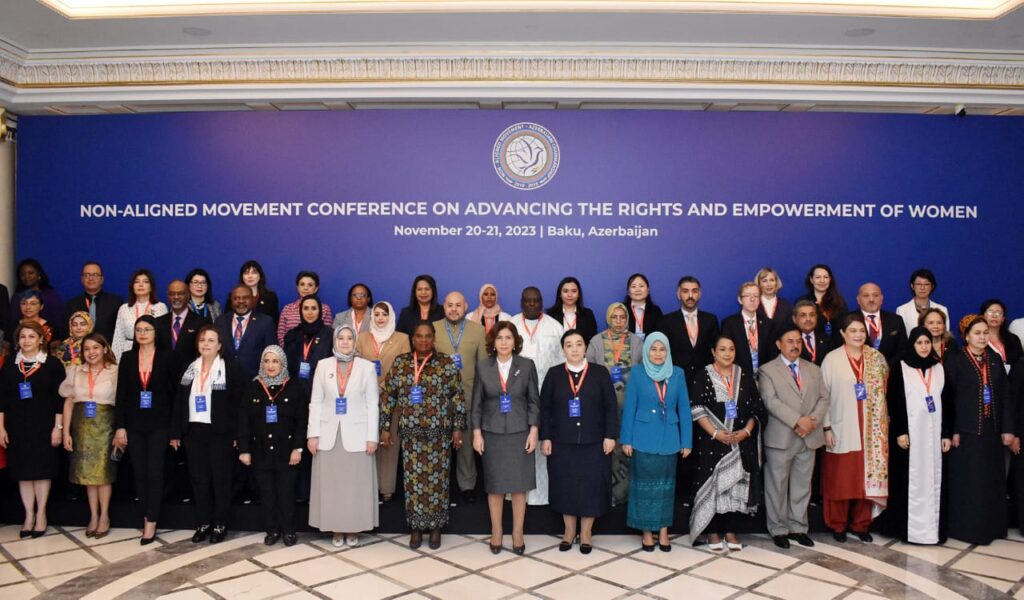
*Challenge of gender inequality that deeply rooted in cultural norms, Nilofar Bakhtiar*
Baku : Ms. Nilofar Bakhtiar, Chairperson National Commission on the Status of Women (NCSW) heads the official delegation in two-day Non-Aligned Movement Conference on “Advancing the Rights and Empowerment of Women”.
Chairperson National Commission on the Status of Women (NCSW) Ms. Nilofar Bakhtiar headed the official delegation in Non-Aligned Movement Conference on “Advancing the Rights and Empowerment of Women”. It is a two-day international conference co-organized by the Republic of Azerbaijan, the Republic of Uganda, the Republic of Uzbekistan and hosted by Republic of Azerbaijan in Baku. The conference was held to discuss how to improve women’s rights and empower women inside the NAM, as well as women’s roles in sustainable development, economic growth, peace, security, and other sectors. Chairperson also presented the country report on Gender Equality & Progress in the conference.
Chairperson said that in the face of multiple adversities, countless women in Pakistan rise not just for themselves, but for a collective vision of a nation and walk hand in hand with their male counterparts as daughters, sisters, and mothers. She mentioned the challenge of gender inequality that was deeply rooted in cultural norms and societal expectations and access to education as a significant hurdle in women empowerment. She said that the educational gap perpetuated a cycle of limited opportunities and reinforced traditional gender roles. She also mentioned issues of violence against women ranging from domestic violence to honor killings, whereas in rural areas women often bear the brunt of economic hardships, with limited access to resources and less financial independence.
She further mentioned some significant improvements in various fields as more women were enrolled in educational institutes and women’s participation in the workforce had seen a positive shift. She added that civil society and advocacy groups had been instrumental in driving this change. Their efforts in raising awareness, challenging stereotypes and providing support services had contributed to a growing momentum for women’s empowerment. She stressed upon collective efforts to achieve gender equality and women empowerment as the world has transformed in a global village.
At the end, she expressed her deep concerns over the plight of Palestinian women who were subject to the worst atrocities, uncertainties and dangers associated with living in an area marked with political tension and violence. She expressed her emotions on the current genocide in Gaza in the hand of Israeli forces. She stated that military actions, checkpoints and the separation barrier in the West Bank had disproportionately affected women’s mobility, making it challenging for women in Palestine to access education, healthcare and employment opportunities. She called for a unanimous stand to express strong support and solidarity with the oppressed Palestinian people.